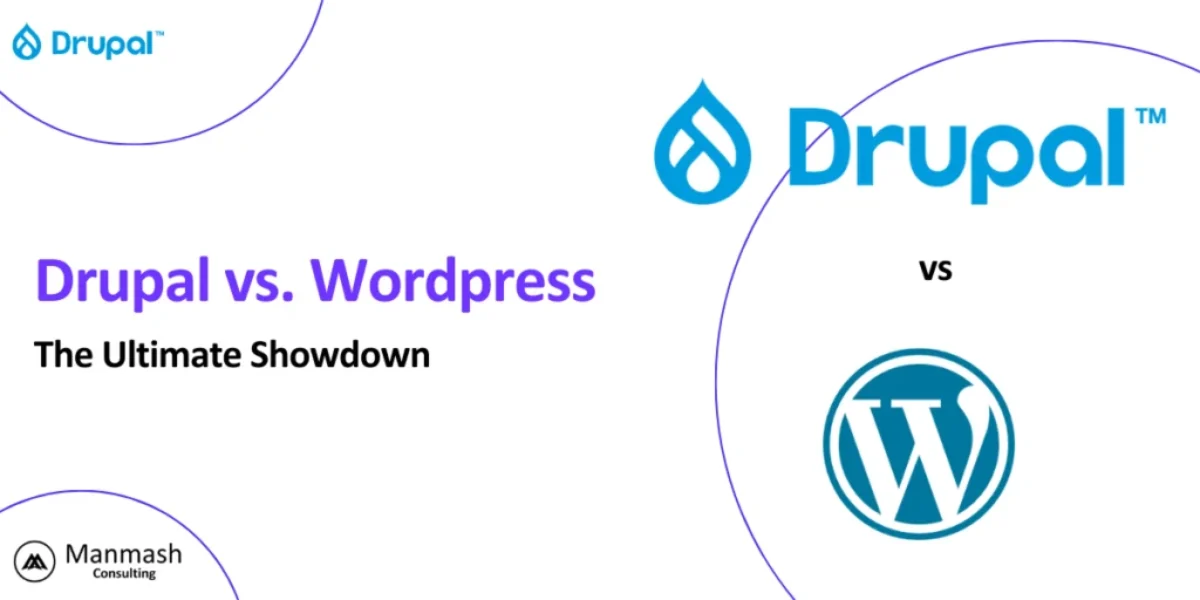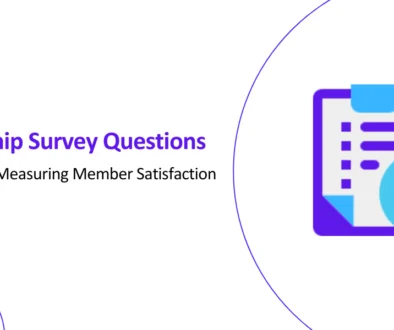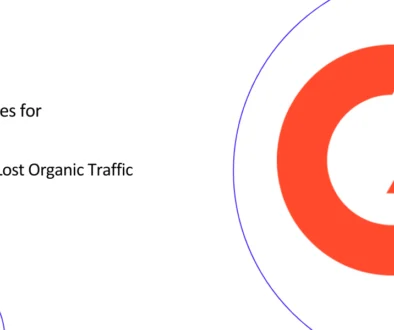Drupal vs. WordPress: The Ultimate Showdown
In the ever-evolving landscape of website development, two platforms have consistently stood out: Drupal and WordPress. Each caters to distinct audiences, but the digital realm’s dynamic nature continually shifts the balance of preference. In this blog post, I have explored the strengths and weaknesses of both, highlighting why your choice between Drupal and WordPress could make or break your website’s success.
WordPress

The Pros
WordPress has become synonymous with ease of use, empowering those with minimal technical expertise to deploy and manage websites effortlessly. Its intuitive interface and user-friendly design have made it a go-to for individuals and small businesses alike. Over time, WordPress has honed its approach, enhancing its system with features that streamline module management, updates, and styling – tasks that are now a breeze on this platform.
The Cons
Despite its strengths, WordPress is not without its flaws. The platform’s heavy reliance on plugins for extended functionality has led to a cluttered ecosystem, where advertisements for pro versions of modules can overwhelm users. Moreover, the challenge of managing a seamless user experience amidst this clutter has been a point of contention for developers seeking a more streamlined, cohesive approach.
Drupal

The Pros
Drupal, on the other hand, caters to a more technically adept audience. Its robust core and extensible architecture offer a fertile ground for developing complex, large-scale websites. Drupal 8 presented challenges, but the stabilization seen with Drupal 9 that further improved in Drupal 10 has reassured developers of its capabilities.
The Cons
Drupal’s Achilles heel has often been its user interface, particularly in theme development, where achieving aesthetic excellence requires a steep learning curve.
Drupal is a Framework/Platform, Not Just a CMS

It’s crucial to recognize Drupal not merely as a content management system (CMS) but as a content management framework (CMF). This distinction underscores Drupal’s flexibility in building a variety of applications beyond basic websites. Its ability to handle complex data structures, coupled with a powerful module ecosystem, makes Drupal a top choice for developers looking to build intricate systems.
Drupal vs WordPress: Navigating the Market Shift
The market for website development has shifted significantly. Small businesses and individual creators often opt for more cost-effective, less complex solutions like Wix, reflecting a broader trend of seeking simplicity and affordability. However, for businesses aiming to give marketers more control over website management, Drupal’s robustness paired with its potential for customization remains appealing.
The Drupal-WordPress Dichotomy
Choosing between Drupal and WordPress is akin to comparing Notepad with Microsoft Word: each serves its purpose based on the user’s needs and technical proficiency. For basic content management needs, WordPress might suffice, but for complex, data-driven websites requiring extensive customization and control, Drupal stands out.
Drupal and AI: A Promising Future
The integration of AI technologies like HuggingFace and ChatGPT with Drupal has opened new frontiers in website development. This combination has streamlined code generation, configuration adjustments, and content management, showcasing Drupal’s adaptability and potential for future growth. Such advancements hint at a future where AI-driven site building becomes a norm, further enhancing Drupal’s appeal to developers looking for cutting-edge solutions.
The Verdict: Drupal or WordPress?
For Small Projects
WordPress, with its user-friendly interface and vast plugin ecosystem, is ideal for individuals and small businesses seeking an easy-to-manage website solution.
For Complex Requirements
Drupal shines as the platform of choice for larger, more complex projects. Its powerful core, flexibility, and scalability cater to the needs of developers looking to push the boundaries of web development.
Drupal’s Evolution
Drupal has undergone a significant evolution and shift in focus over the years. Earlier versions like Drupal 6 and 7 were well-suited for various website needs, including simple brochure websites. However, with the release of Drupal 8, the platform took a clear turn towards the enterprise market. This is evident in its features and functionalities – it caters more towards complex websites with demanding requirements, often associated with large organizations like those managed by Acquia, a prominent Drupal service provider.
Drupal’s overall usage statistics are dropping, and WordPress’s adoption is increasing, but there is caveat
This shift has resulted in a decrease in Drupal’s overall usage statistics. However, it has also led to advantages for those specializing in Drupal development. The complexity of Drupal 8+ translates to a higher demand for skilled developers, reflected in increased salaries and consistent job opportunities. Additionally, enterprise clients like governments and universities continue to use and expand their Drupal environments, highlighting the platform’s suitability for large-scale, high-security projects.
In essence, Drupal has evolved from a versatile CMS to a powerful enterprise solution. While this may have narrowed its overall user base, it has solidified its position in the high-end market, creating a niche for skilled Drupal developers.
Drupal has become one of the best Headless CMS
Headless Drupal delivers content through APIs, allowing it to be displayed seamlessly across various platforms – mobile apps, web apps, digital displays, etc. This empowers large-scale websites to maintain a consistent brand experience across all touchpoints. Moreover, going headless helps in shortening development cycles and enhance security for large websites in many ways. Although WordPress also offers REST API and can be turn into a ‘headless’ CMS, it requires additional configuration and custom development work for going headless smoothly, unlike Drupal. WordPress is simply not built for headless.
Embracing the Future
As we look to the future of web development, the choice between Drupal and WordPress will increasingly hinge on the specific needs and technical capabilities of the project at hand. While WordPress continues to democratize web development, Drupal’s evolution, especially with AI integration, positions it as a formidable tool for complex, innovative web projects.
Please go through this Reddit Forum on Drupal vs WordPress to further your understanding on this topic, I found the discussion here quite unique and insightful.
How Manmash Consulting Can Help?
Whether you’re a developer, a business owner, or a creative professional, the time to explore Drupal CMS is now. Although WordPress provides a more user-friendly experience, Drupal’s robust capabilities helps you handle a website project with high level of complexity. Manmash Consulting is a Drupal Web Development Agency that knows Drupal CMS in and out. Our Drupal Consultants will not just work for you, but work with you to help you design a website that achieves business goals and becomes your number 1 salesperson. Book your free consultation now with Manzar Mashhood, CEO and Founder of Manmash Consulting, or contact him on Linkedin or Whatsapp: +923331200550.




